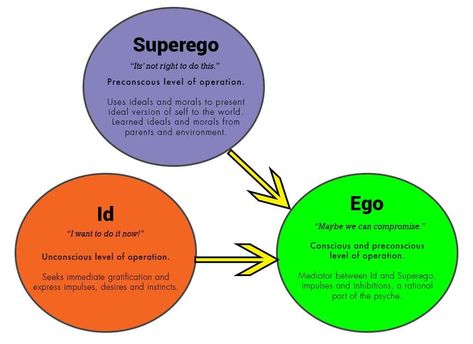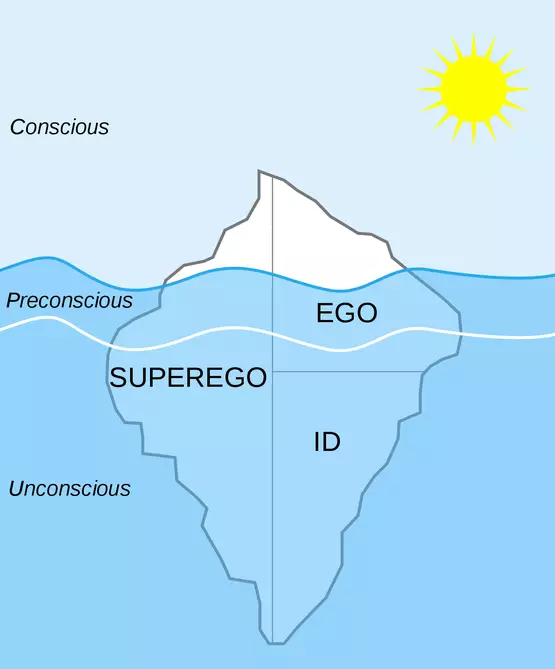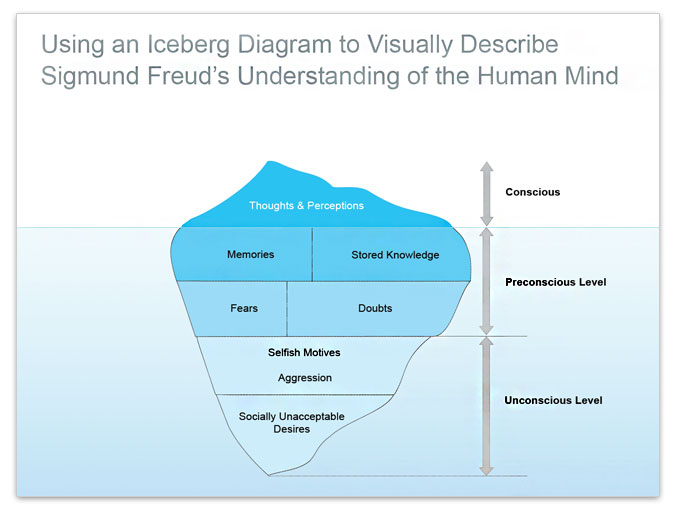
When talking about personality, one must mention Freud. 
pictured here with a small cigar.
Yes, even me. (Anyone who knows me knows I'm not a fan)
Despite my personal thoughts about his theory, mad props and respect has to be given to Sigmund Freud for being one of the biggest influencers of psychology, and remains so today.
I need to pause here for a sec to say that despite his HUGE influence, he is NOT the Father of Psychology- that title goes to Wilhelm Wundt and his Institute of Experimental Psychology which was founded in 1879, and established Psychology as an independent discipline and science.
HOWEVER… Sigmund Freud is considered one of the Founding Fathers of psychology (there are at least 5 of those, and more depending who you ask) or the founding father of psychoanalysis. Despite Freud's super rockstar popularity in the media, and the ‘grin and take it’ attitude of some of us in the field, the truth of the matter remains that Wundt is the one with the title in the end! 
That said, let's go back to Sigmund Freud and his Theory of Personality, one of the most influential and well known.
Everyone has at least heard of the terms Id, Ego, and Superego. These are, according to Freud, the three components of everyone's personality.
According to Freud, we are not born with a fully shaped personality. This is formed as we grow and become socialized in the very beginning of our lives. (In a nutshell, he believed that humans are inherently uncontrollable beasts and society is needed to give them a polish or veneer of goodness)
We are born with the Id, which is the aspect of our personality that is (and remains) entirely unconscious. All energy and motivation originally stems from the Id, and the Id motivates one solely on what he called the Pleasure Principle: the pleasure principle strives for immediate gratification of all needs and wants. If these needs and wants are not met, anxiety and tension ensues.
According to Freud we are born with the Id because that is highly adaptive: an infant needs the Id to survive, and demand immediate gratification of all his/her physical needs. No reasoning or thought takes place for the Id's operation and reactionary motivations.
For example: if you are hungry and see a plate of french fries in front of someone else, and just grab the french fries without thinking, you are operating purely on the Id's commands- acting on impulse and no thought.
As the infant grows into a toddler, and the toddler is taught what is acceptable and what is not in the world, the Ego develops.
The Ego is the part of our personality that acts on the Reality Principle: satisfying what the Id wants but in a socially acceptable manner.
So if your Ego is working when you get the impulse to grab the other guy's french fries, you will consider that if you do that, you'll probably get punched or labeled a thief or ridiculed; and so you will curb your Id's impulse and not grab the fries. You may instead politely ask for them, or go buy your own.
The Ego is the part of our personality that operates on all levels of consciousness: the unconscious, the preconscious (or subconscious) which is that ‘just under the surface’ state of awareness that we have of ourselves, and the conscious.
Finally, as the toddler grows more into a child and gets even more socialized, the third and last part of our personality, the Superego, is developed. Freud speculated that the Superego begins to emerge around age 5. The Superego operates on all levels of consciousness as well.
The Superego is the sum of all the moral standards, ideals, and values that we have internalized as we get socialized. The Superego strives to perfect behavior and control all Id impulses and Ego decisions so that we fit the Superego's “ego ideal” (i.e. the ‘perfect self’ how you would be if you were perfectly moral, with perfect integrity, with perfect values, etc etc etc).
For our french fries example, your Superego is at work if you curb your impulse to grab the other guy's fries because you tell yourself that it's immoral, or that it's not right, or that it's beneath your standards, even if nobody is watching you.
Our personality with all its parts then looks a bit like an iceberg floating in the sea, where whatever is above the surface is conscious (i.e. we're aware of it) and whatever is below the surface is unconscious (i.e. we can't be aware of it even if we tried) or subconscious/preconscious (i.e. we're able to become aware of it if we want to), like so: 
According to Freud, our minds are constant and vicious battlefields:
All three parts of our personality strive to dominate our behavior, and that friction and conflict between our three personality parts, the Id, Ego, and Superego, is what creates all of our anxiety, stress, and eventually might develop into problematic behaviors.
The Ego seeks to compromise the fierce conflict between the Id and the Superego. These can develop protective thought functions or strategies that the Ego develops to relieve the anxiety that is created from that very conflict. These are called defense mechanisms
There are several, and Freudians and Neofreudians keep adding to the list, and I invite you to explore them all, they can be a lot of fun- and you are very likely to recognize some in the behaviors of others and even yourself. HOWEVER- the fact that you may recognize a defense mechanism does NOT mean there is any problem or issue with you or the person in question: a lot of the defense mechanisms are adaptive rather than dysfunctional.
When you build a character based on Freud's Personality Theory:
While the Id is relatively uniform for everyone across cultures and race/ethnicity, how the Ego and Superego develop is entirely hinging on the child's upbringing! According to Freud, this is the iceberg layout you need to fill in for your character if you build your OC through his lens: 
You will also need to decide the following:
1. Who was the primary caretaker of the character when they were born?
2. If they disciplined them strictly/consistently, they will develop a strong Ego fairly quickly.
3. If the discipline is not coupled with morality/ethics teachings, the Superego will be weak. The Ego will be operating more on the principle of doing what the Id wants acceptably for society rather than doing what the Superego dictates.
4. What are the Superego's principles? How strong is the Superego?
Play around with the strength of the three personality parts and how the character's Ego seeks to compromise the conflict between the Id and the Superego.
A serial killer that kills sinners has a very strong Superego, but he might potentially also have a strong Id (hence the impulse to kill in certain ways) and the Ego might have developed defense mechanisms to protect him from the anxiety that is created because murder is not socially acceptable (i.e. ‘they make me do it’ or ‘cleansing society is more important so murder is acceptable’, etc)
A very moral sounding character might have a very strong Id, but the strong Superego represses those impulses. Hence the Ego may allow them to manifest only when the anxiety is too strong, and only if the character's true identity is hidden from society in some fashion.
There are infinite ways to play with the interplay of the personality parts and the Ego's endless work to compromise between the Id and the Superego. While you do decide on these parts and how they were developed, you will also need to build the character's background and behavioral patterns, and again, you will have a fully fleshed out character, with all his/her visceral motivations, wants, and inhibitions laid out at your feet!
DISCLAIMER: Do NOT take Freud's theory as the one and only truth, or as truth at all. There are many psychologists who don't and criticisms of Freud's theory are literally a favourite passtime for quite a few. Psychologists do NOT take any single theory as the one and only truth! Each theory has merits and applications and psychologists use them all with due training.
And yes, I know you expected me to talk about Anal/Oral/Phallic personalities, but nope! That's for next time. Yes, Freud needs TWO posts to be just summarised. He was proliferate!
Don’t forget you can now advertise on DrunkDuck for just $2 in whichever ad spot you like! The money goes straight into running the site. Want to know more? Click this link here! Or, if you want to help us keep the lights on you can sponsor us on Patreon. Every bit helps us!
Special thanks to our patrons!!



Justnopoint - Banes - RMccool - Abt_Nihil - PhoenixIgnis - Gunwallace - Cdmalcolm1 - PaulEberhardt - dragonaur - Emma_Clare - FunctionCreep - Eustacheus - SinJinsoku - Smkinoshita - jerrie - Chickfighter - Andreas_Helixfinger - Tantz_Aerine - Epic Saveroom - Genejoke - Davey Do - Spark of Interest - Gullas - Damehelsing - Roma - NanoCritters - Scott D - Bluecuts34 - j1ceasar - Tinchel - PhillipDP - Teh Andeh - Peipei - Digital_Genesis - Hushicho - Sad Demon Comics - JediAnn Solo - Kiddermat - BitterBadger - Palouka - cheeko - Paneltastic - L.C.Stein - Zombienomicon

Archetypes Through a Psych Lens: Psychodynamics
Tantz_Aerine at 12:00AM, March 20, 2021
5 likes!


©2011 WOWIO, Inc. All Rights Reserved Mastodon





Banes at 8:55AM, March 21, 2021
I didn't design my characters this way, but I have used psychological modeling - in part - to come up with them and their conflicts with each other and the outside world. Even using this model, I can see that some of my characters have more Id-like behavior and conflicts, while others have Ego- or Superego- type conflicts. Cool stuff! And a massive amount of work to put this article together! thanks!
Banes at 8:52AM, March 21, 2021
very interesting! And of course i can see the fun of using these principles to come up with characters - and definitely to come up with casts of characters and how they conflict. Famously, the trio of Kirk, Spock and McCoy from Star Trek have been compared with the Superego, Ego, and Id, respectively.
Tantz_Aerine at 5:59PM, March 20, 2021
Hushicho, honestly, I'm presenting ALL the major personality theories, whether I like them or not. I made that clear enough in my introductory post. You don't need to be so defensive of him, he has a lot of fans and doesn't need me ;) And btw, I don't like Anna Freud's work either. And as a last note, what I presented is not psychoanalysis. It's the personality theory you build a character with, not the method of treatment.
Tantz_Aerine at 5:57PM, March 20, 2021
Paul: Thank you! Also, on the elongated fish issue, I'd say it's eel advised to make a diagnosis without a thorough investigation of the matter. :P
hushicho at 3:17PM, March 20, 2021
Honestly, you could just focus on any other method of creating and developing a character, if the Freudian method isn't for you. It's not something that makes things easier, and most people probably aren't going to approach character development through psychoanalysis. Plus, if you dislike Freud so much, it may be worthy to note that his daughter Anna Freud is actually responsible for more of the actual, workable stuff of most of the theories we associate with Sigmund, and her work in the field is overall more interesting, at least in my opinion.
PaulEberhardt at 12:18PM, March 20, 2021
Btw.: Do you think that people with an obsession for elongated fish should be considered mentally eel?
PaulEberhardt at 12:15PM, March 20, 2021
I found that a list of defense mechanisms can be an excellent tool against writer's block. The six classic ones in the link are a good start, but those who want some extra spice may as well add things like negation, progression, reaction formation, avoidance, devaluation/idealisation, projection/introjection, neutralisation and what have you. Then go through the items on that list one by one and imagine what each would look like with the character you're stuck with (in the situation you're currently stuck in). Afterwards you can either pick those results you liked best or use the progression on your list - if your memory for this is as patchy as mine, it won't be the same order every time - but often I won't even need to do that because the story writes itself by then. And thank God, my ego still works well - I made it through two long comments without a single misplaced joke about eels. ;)
PaulEberhardt at 12:02PM, March 20, 2021
I had to somewhat study Freud's theories during teacher training - especially those bits about psychosexual development (ugh!) - and while my professor seemed to be quite driven there, those lectures convinced me I'm not a fan at all, like you. Also like you, I have to concur that there's simply no way of getting around old Siggi, and that's especially true in writing; makes you wonder how authors did without it in those centuries before him, probably the same way they did without WiFi. Both are way more useful than they have any right to.
Tantz_Aerine at 3:34AM, March 20, 2021
Marcorossi: ohhhh now you've done it- that's a bone of contention for Freudians. I'm not touching that. I am not a Freudian. The original theory wants the Ego going right after the Id because it's geared to be socially acceptable to avoid punishment WITHOUT knowing why something is punishable (i.e. the ethics behind it). That is internalized after when the kid starts handling concepts like sin/virtue/etc. That it the Ego reacts to discipline without necessarily the kid being able to have an idea of the self.
marcorossi at 1:26AM, March 20, 2021
Question from someone who never studied psychoanalysis, but read many books of it (mostly by the early authors) for the purpose of writing webcomics: isn't the superego logically prior to the ego? I mean to have an idea of myself I first need to see myself from other people's point of view, that would be the superego.